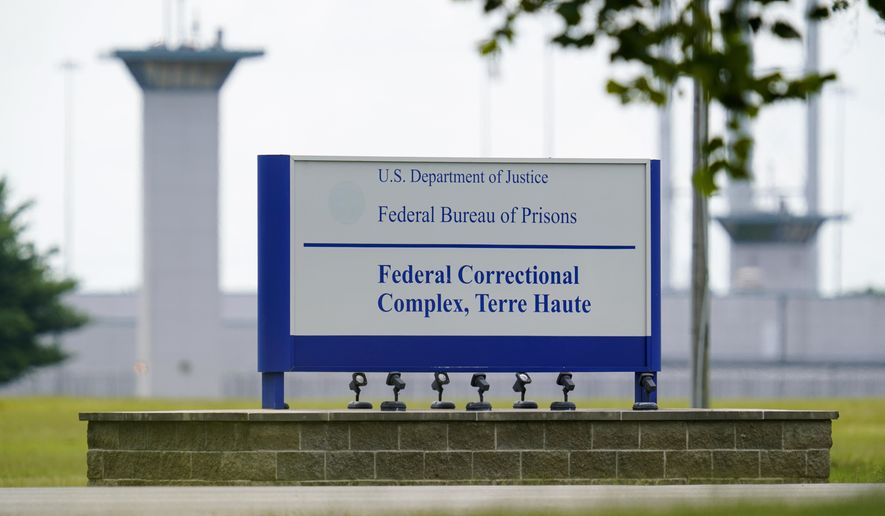A gang member who was tied to the murder of seven people in Richmond, Virginia, in 1992 was executed Thursday night after the U.S. Supreme Court refused to delay his execution because he tested positive for COVID-19.
Corey Johnson, 52, was put to death at the federal prison complex in Terre Haute, Indiana. He is the 12th person to be executed since the Trump administration revived the federal death penalty after a 17-year hiatus.
“I am OK. I am at peace,” Johnson said before he was executed, according to The Associated Press.
Before his final words, Johnson said he was “sorry for my crimes” and that “he was not the same man that I was,” the AP reported.
Johnson’s final days were spent in a legal back-and-forth among several courts after he contracted COVID-19.
His attorneys asked to delay the execution arguing that COVID-19 had damaged Johnson’s lungs to such an extent that they would fill up with fluid from the drugs used to carry out the lethal injection.
Defense attorneys said that would give Johnson the same sensation as waterboarding, a form of torture banned in the United States. Therefore, they maintained, his execution would amount to cruel and unusual punishment.
A lower court delayed Johnson’s execution, but that ruling was overturned Wednesday by an appellate court. Johnson then launched a last-ditch effort to have the U.S. Supreme Court halt the execution, which the high court denied.
Defense attorneys also raised claims that Johnson was intellectually disabled with an IQ of around 69. The Supreme Court also rejected that argument.
“The government’s arbitrary rush to execute Mr. Johnson, was categorically ineligible for execution due to his significant impairments rested on procedure technicalities rather than any serious dispute that he was intellectually disabled,” his attorneys said in a statement. “No court ever held a hearing to consider the overwhelming evidence of Mr. Johnson’s intellectual disability. And the clemency process failed to play its historic role as a safeguard against violations of due process and the rule of law.”
Dustin Higgs, another death row inmate, is scheduled to die Friday night. Higgs was convicted of ordering the execution of three women in Maryland in 1996 for rebuffing his advances at a party.
His lawyers have argued that he should be spared because he did not kill anyone himself.
• Jeff Mordock can be reached at jmordock@washingtontimes.com.




Please read our comment policy before commenting.